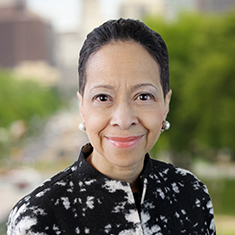Guest contributed by Lisa Levey
The business case or economic justification for gender diversity is front and center in any discussion of the subject.
Yet as a veteran diversity consultant, I don’t see the business case is getting the job done. It’s not that the business case is unimportant. Clearly, it’s critical but while the business case is necessary, it’s not sufficient.
There has long been evidence of the links between gender diversity and positive business outcomes – enhanced financial performance, greater creativity and innovation, and less risk among others. In 2008 the U.S. and the world fell into an economic downturn of epic proportions. Yet as late as the spring of 2007, the International Monetary Fund or IMF was messaging continued optimism for the global financial markets.
How could the IMF – explicitly tasked with monitoring the health of global financial markets – have missed the signs? An independent study found that ‘groupthink’ fueled by lack of diversity in perspective was to blame and gender diversity is a powerful means to bring that diversity of perspective to the table.
In June 2011 Christine LaGarde became the first female leader of the IMF replacing her predecessor Dominique Strauss-Kahn who was at the helm in the run-up to the global financial crisis. In 2016 LaGarde was unanimously voted for another 5 year term.
The IMF example powerfully illustrates the limitations of the business-case only bias characterizing our current approach to justifying a focus on gender diversity. If bringing the world’s economies to their knees does not provide sufficient evidence of the business case for diversity – and the economic hazards of homogeneity – it’s clear the business case must only be a piece of a bigger puzzle.
Most white men approach gender diversity, all diversity truth be told, with trepidation. They experience the topic as harmful, fraught with conflict and risky. For some men, the very idea of enhanced gender diversity elicits anger. They perceive women’s initiatives as reverse discrimination and see support for greater gender diversity as undermining their professional security and status. Gender diversity makes many men feel awkward, confused and guilty; they keep their distance thinking, ‘I’m not one of those guys. I’m a good guy. I’m not doing anything wrong.’ But of all men’s problems with gender diversity, the biggest barrier to their involvement is indifference and apathy. In their mind’s, gender diversity is a women’s issue.
But that is where they would be completely mistaken!
Diversity is about evolving work cultures so that men can be the far more engaged fathers they long to be. Diversity is about men being able to take paternity leave – without career penalty – so they can experience the profound bonding with their child in his or her earliest days. Diversity is about men’s wives and partners being paid equitably, so she can contribute more financially, and he can feel less financial pressure. Diversity is about men’s mothers being able to reenter the workforce after divorce so that she can support herself and rebuild her self-esteem, in many cases. Diversity is about men’s sisters who want to leave unfaithful or violent husbands but don’t feel financially able to do so.
Diversity is about men’s daughters having the same professional opportunities as their sons and their sons having the same opportunities to be involved parents as their daughters. Diversity is about men’s daughters not having to deal with the sexually inappropriate norms that are pervasive in the workplace. Diversity is about men’s female bosses, many incredible mentors, not getting the opportunities they deserve because they’re deemed too nice – or not nice enough – to be a senior leader.
Diversity is about men recognizing that many of their seemingly harmless behaviors – assuming a new mother is not up for the challenge of a new job or stretch assignment without even asking her, making sexual jokes that demean, talking over women in meetings, paying the women you manage less than the men because you can – don’t just affect those other women. They affect his women [and girls] too by normalizing and perpetuating the status quo.
While gender diversity is the smart thing to do in a business sense, it is also the right thing to do in so many ways. We shouldn’t be so reluctant in the business world to say that aloud! Helping men realize the connections between gender diversity at work – and in their lives outside of work – has been an enormous missing link. Gender diversity is not just about men helping women to thrive at work. It is about men being full partners in driving change because they know just how much gender diversity at work is connected to so many parts of their lives and has repercussions far beyond their workplaces.
My vision is for white men to be an important voice at the diversity table, listening, sharing, and working to co-create new norms. Gender diversity is not a zero-sum game. It’s about evolving the work world for the 21st century in ways that improve the lives of women and men.
When we talk about gender diversity, in addition to articulating the economic case, let’s also talk about how it deeply affects men – the people they care about, the values they hold, the lives they want to lead, and the world they want to create for themselves and their children.
Contributor Bio
Lisa Levey is a veteran diversity consultant, having worked with leading organizations for more than two decades to assist them in realizing the underutilized leadership potential of women. Her current work focuses on engaging men as allies and partners. She led the design and development of the Forte Foundation’s Male Ally signature resource platform for engaging men in diversity work and architected a pilot program to launch corporate male ally groups. She blogs for the Huffington Post and the Good Men Project on gender norms at work and at home. In the spring of 2018 partnering with her husband Bryan, Lisa is launching Genderworks, a coaching practice for dual-career professional parents to support them in navigating the obstacles to gender equality at work and at home. Lisa earned an MBA with highest honors from the Simmons School of Management and a BS with distinction from Cornell University in applied economics.
Disclaimer: The opinions and views of guest contributors are not necessarily those of theglasshammer.com





